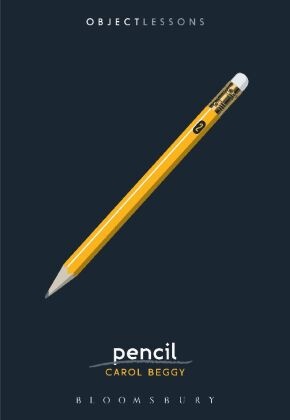| Verlag | Bloomsbury Trade |
| Auflage | 2024 |
| Seiten | 152 |
| Format | 12,2 x 1,0 x 16,6 cm |
| Gewicht | 147 g |
| Artikeltyp | Englisches Buch |
| Reihe | Object Lessons |
| EAN | 9781501392245 |
| Bestell-Nr | 50139224UA |
Object Lessons is a series of short, beautifully designed books about the hidden lives of ordinary things.
A cylinder of baked graphite and clay in a wood case, the pencil creates as it is being destroyed. To love a pencil is to use it, to sharpen it, and to essentially destroy it.
Pencils were used to sketch civilization's greatest works of art. Pencils were there marking the choices in the earliest democratic elections. Even when used haphazardly to mark out where a saw's blade should make a cut, a pencil is creating. Pencil offers a deep look at this common, almost ubiquitous, object.
Pencils are a simple device that are deceptively difficult to manufacture. At a time when many use cellphones as banking branches and instructors reach students online throughout the world, pencil use has not waned, with tens of millions being made and used annually. Carol Beggy sketches out how the lowly pencil is still a mighty useful tool.
Object Lessons is pu blished in partnership with an essay series in The Atlantic.
Inhaltsverzeichnis:
Introduction
1. Variations on a Theme
2. Making Their Mark
3. Tools of the Trade
4. People and Their Pencils
5. To Boldly Go
6. Collectors Versus Users
7. Pencils in the Wild
8. A Thoreau Job
9. Pencils Up
10. #FindYourPeople
Afterword
Notes
Acknowledgments
Selected Bibliography and Suggested Further Reading
Index
Rezension:
A fascinating voyage of discovery demonstrating why, in an age of electronic everything, the pencil still grips us. Daniel Rosenberg, Professor of History, University of Oregon, USA, and author of Cartographies of Time: A History of the Timeline

